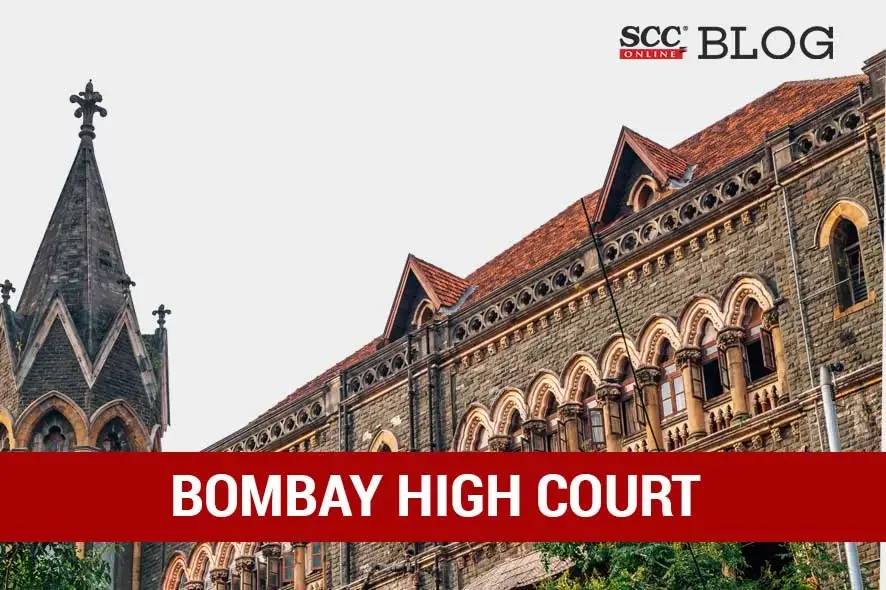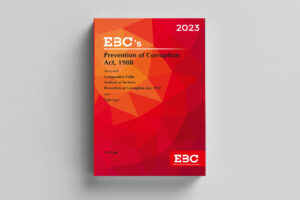Bombay High Court: A criminal application was filed by Mehul Choksi, a businessman, challenging the order dated 30-08-2019 passed by the Special Judge and seeking to dismiss the application preferred under Section 4 of the Fugitive Economic Offenders Act, 2018 (FEO Act). Sarang V Kotwal, J., rejected the application as there was no infirmity in the verification and all the requirements under Section 4 of the FEO Act and under Rule 3 of the FEO Rules are properly complied with in this case.
An FIR was registered with CBI on 15-02-2018 under section 120-B read with 420 of IPC and under section 13(2) read with 13(1)(d) of the Prevention of Corruption Act 1988. Pursuant to the FIR, the charge sheet was filed by the CBI before the Special CBI Judge on 15-5-2018 who took cognizance against the applicant and the other accused which stands pending before the Special Judge for CBI, Sessions Court, Greater Bombay. In pursuance to the registration of the FIR by the CBI, the Enforcement Directorate (‘ED’) registered an Enforcement Case Information Report (ECIR) and filed a complaint under section 45 of the Prevention of Money Laundering Act, 2002 (‘PMLA’) before the Special PMLA Court. That Court took cognizance on 03-07-2018 against the Applicant and the other accused and the case is pending before that court at the stage of appearance.
In July 2018, the ED filed an application under section 4 read with Section 12 of the Fugitive Economic Offenders Ordinance, 2018 praying that the Applicant be declared as a fugitive economic offender and his properties be confiscated under FEO Act. The Applicant filed an application before the Special Judge praying for dismissal of the application filed under the FEO Act on the ground that the application under section 4 of the FEO Act was not accompanied by an affidavit as contemplated under section 297 of CrPC which was thereby rejected and stands impugned by the present application.
The Court noted that Section 297 of CrPC mentions that the deponent making the affidavit shall separately state such facts as he was able to prove from his own knowledge and such facts as he has reasonable ground to believe to be true, and in the case of his belief, he has to state the grounds of such belief. In the present case, the verification mentions that the application is filed to the best of the deponent’s knowledge derived from the records. He has nowhere stated that he was filing the application based on his own knowledge, but it was based on his knowledge derived from the records. Therefore, there cannot be any infirmity in this type of verification wherein the application is filed based on the records which the deponent had perused, and he believed it to be true to the best of his knowledge. Thus, it complies with the requirement of clauses 4 & 5 of the Criminal Manual and there is nothing wrong with the verification.
The Court further noted that Section 4 of FEO Act refers to an application in such form and manner as may be prescribed under Rule 3 of the FEO Rules. In the present case, the application is filed in the format laid down in the said Rule 3, therefore, there is sufficient compliance with the requirement of Section 4 of the FEO Act. Section 5 of CrPC provides that nothing contained in the CrPC., in the absence of specific provision to the contrary, affects any special law or any special form of procedure prescribed by any other law. Thus, the procedure prescribed under FEO Act is not affected by the provisions of CrPC. In fact, Section 21 of the FEO Act gives an overriding effect to the FEO Act and therefore even as per Section 5 of CrPC and as per Section 21 of the FEO Act, the special procedure prescribed under the FEO Act will not get affected by any provision under CrPC.
The Court observed that the purpose of FEO Act is to provide for measures to deter fugitive economic offenders from evading the process of law in India by staying outside the jurisdiction of Indian courts, to preserve the sanctity of the rule of law in India and for matters connected therewith or incidental thereto. Therefore, section 4 of the FEO Act and Rule 3 of the FEO Rules are made to further the objective of this Act and they cannot be bypassed by taking recourse to the other provisions of CrPC to contend that the affidavit was not proper.
As all the requirements required under the statutes were complied with, the Court found no reason to interfere with the impugned order.
[Mehul Choksi v. State of Maharashtra, 2023 SCC OnLine Bom 2037, decided on 21-09-2023]
Advocates who appeared in this case :
Mr. Vijay Aggarwal, Advocate a/w. Rahul Agarwal, Yash Agrawal, Abhiraj Rai, Jasmin Purani, Rohit Kaul, Yashwardhan Tiwari for the Applicant.
Mr. A.R. Patil, APP for the Respondent No.1-State.
Mr. H.S. Venegavkar, Special P.P. a/w. Aayush Kedia for the Respondent No.2.







